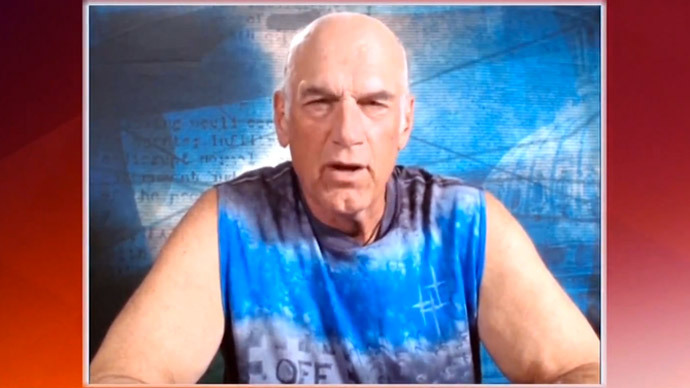‘Big Brother’ should not tell us what to watch – Jesse Ventura on RT-ISIS comparison

Jesse Ventura, the former governor of Minnesota, said the US official who equated RT with the Islamic State and Boko Haram was advocating censorship and that “Big Brother” should not tell Americans how to digest the news.
Speaking to RT, the former professional wrestler took exception to comments made by the new head of the US Broadcasting Board of Governors, Andrew Lack. In an interview with The New York Times, Lack said RT posed a considerable challenge to US state media, comparing it to terrorist organizations like ISIS and Boko Haram.
READ MORE:State Dept disagrees with head of US state media over equation of RT with ISIS
“We are facing a number of challenges from entities like Russia Today which is out there pushing a point of view, the Islamic State in the Middle East, and groups like Boko Haram,” Lack said. “But I firmly believe that this agency has a role to play in facing those challenges.”
The statement drew backlash from across the internet and social media under the hashtag #NewsIsNotTerror, prompting the US State Department to distance itself from the comments.
Ventura told RT’s Ben Swann that Lack was calling for censorship.
“What offends me, personally, the most is that someone would even contemplate censorship. The United States of America is supposed to be a country of freedom,” he said. “Now, I’ll admit a lot of the people aren’t exercising their brains like they should be right now, but it’s still up to us as citizens. We should not be censored.”
“There should be no Big Brother telling us what we can or cannot see. If someone desires to watch RT TV and takes the opinion they don’t like, well then they merely don’t have to put it to that station. How dare someone come forward and advocate for censoring what I, as an individual, choose to see or do in my life in this country.”
READ MORE:Ex-BBG member: News outlets should never be compared to terrorists
Ventura also criticized mainstream media for prioritizing “entertainment” coverage over serious issues such as the recent CIA leak trial, which centered on allegations that former officer Jeffrey Sterling disclosed details about a confidential plot against Iran to a New York Times reporter. Ventura traced the media’s problems back to the debut of CBS’ trailblazing “60 Minutes” program, which pushed corporations to monetize the news.
“The real downfall, believe it or not, was the show ‘60Minutes,’” he said. “Now, ’60 Minutes’ did a lot of great things, but here’s the downfall: Up until that time, [companies] wrote off the news media as a financial loss that they’d make up in the entertainment division. ’60 Minutes,’ all of a sudden, shot to number one, was making money. The light went off: 'You mean we can make money off the news?' And that’s when the news became entertainment.”
“So what you have is a brand of entertainment being fed to the people now, not necessarily news of intelligence and information gathering to allow people to make their own – hopefully educated – decision on something.”












